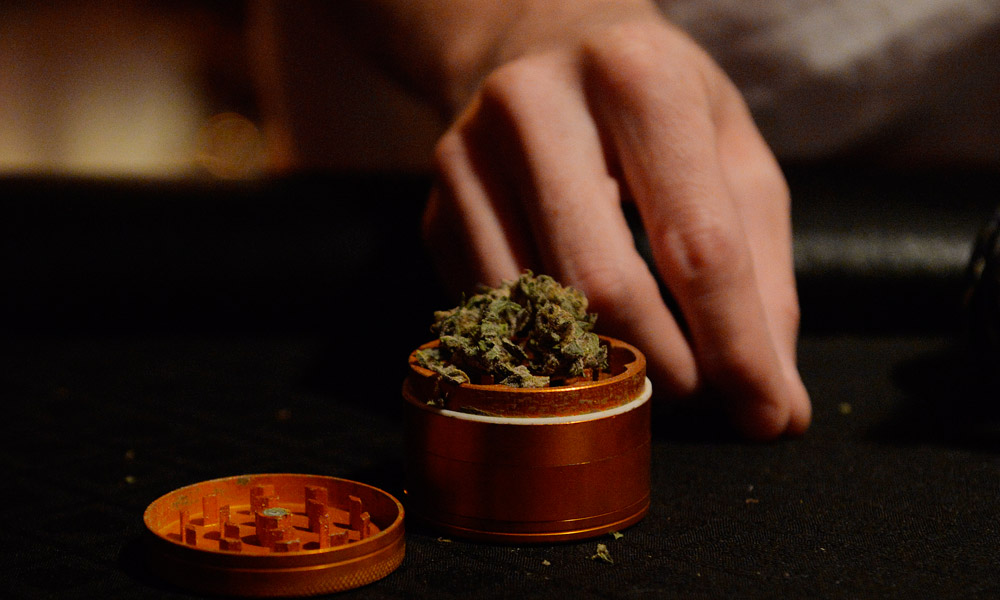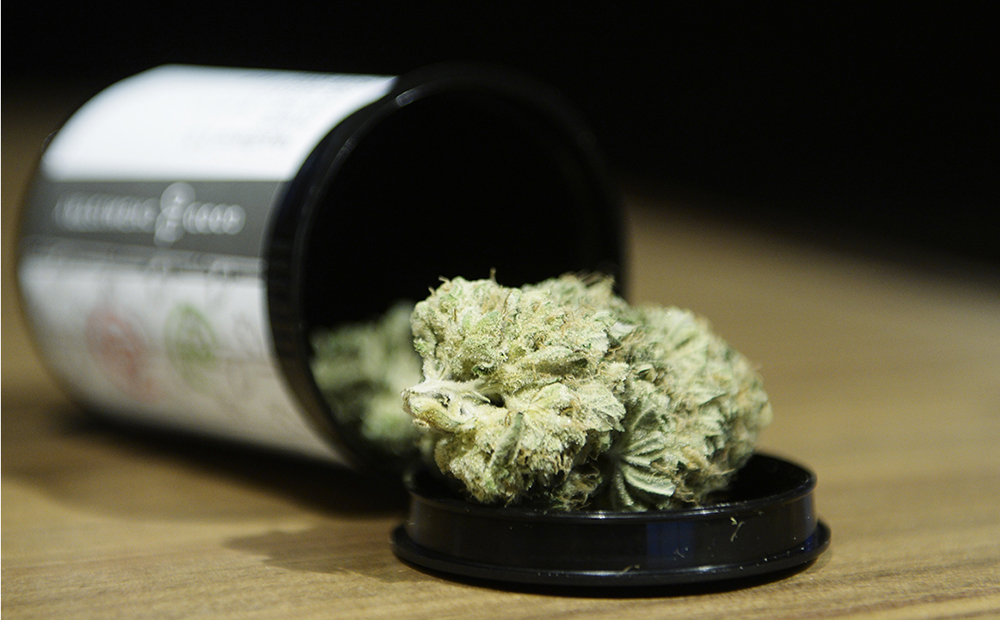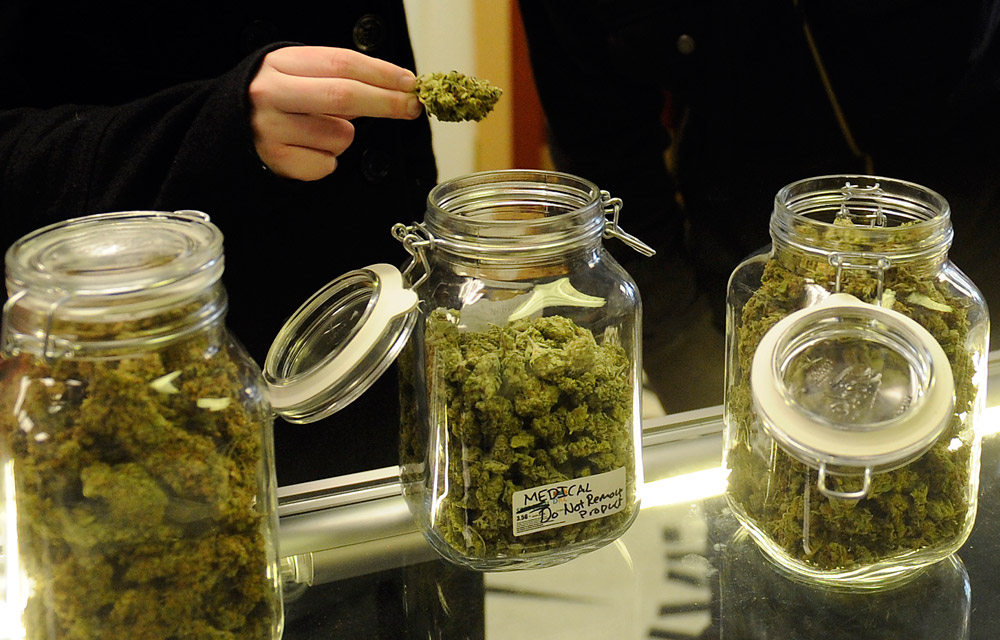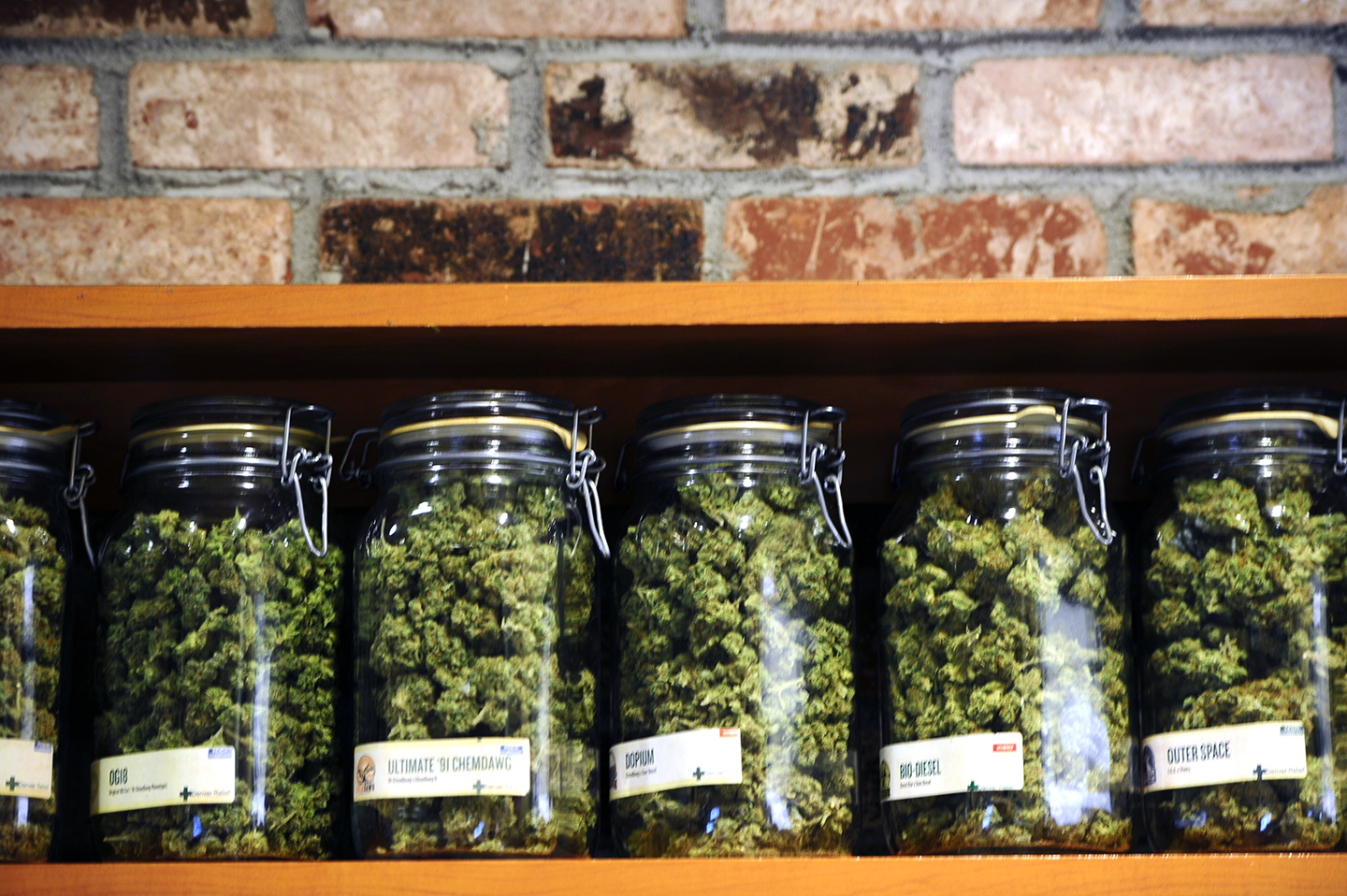
Op-ed: Five years after Amendment 64, Colorado’s marijuana crop is getting greener
Five years after Coloradans legalized recreational marijuana, the state is more familiar with marijuana’s environmental impact, prompting positive changes.

Five years after Coloradans legalized recreational marijuana, the state is more familiar with marijuana’s environmental impact, prompting positive changes.

California’s pot-legalizing Proposition 64 comes four years after Colorado’s successful pot-legalizing Amendment 64.

Sheriffs and prosecutors from across Colorado and neighboring states filed a lawsuit Thursday in Denver federal district court challenging the constitutionality of Amendment 64, which legalized recreational marijuana use and sales.

Imagine a green light for virtually any club, bar or concert to allow open consumption of marijuana provided it sold tickets and confined pot use to an open-air area not visible from outside. Can anyone seriously claim that’s what Coloradans voted for in 2012?

Sure sounds like routine fine-tuning; Amendment X would “change the industrial hemp definition from constitutional to statutory.”

“In the last week there’s been a groundswell of support to include this amendment in appropriations legislation,” Rep. Jared Polis said.

The House Rules Committee rejected a number of marijuana-related amendments from a federal appropriations bill, most notably Rohrabacher-Blumenauer.

Rep. Matt Gaetz, R-Florida, has proposed an appropriations amendment to provide safe harbor for medical marijuana research in the majority of U.S. states.

The House Rules Committee decided not to allow a medical marijuana amendment to the Veterans Affairs appropriations bill to proceed to a full vote.

The last-ditch attempt came on the same day the International Church of Cannabis was set to open its doors in Denver.

In California, where voters will soon decide the fate of the pot-legalizing Proposition 64, much of the existing cannabis industry is not prepared.

Though most of the attention surrounding Prop. 64 centers on how it would make pot legal, the law would do something else for individuals.

California’s Proposition 64 is 62 pages long and aims to regulate the entire cannabis industry, from seeds to pipe. Here are highlights.

The Proposition 215 medical marijuana pioneer, Dennis Peron is fighting Proposition 64 in California –which would legalize recreational marijuana.

If it’s legal to smoke weed with your friends in two years, you can thank Silicon Valley tech money, Colorado and the emerging cannabis industry.

Opponents of California’s Proposition 64 to legalize marijuana for adults have filed a lawsuit that claims advocates made “false and misleading” statements.

Leading up to California’s fall vote on Prop. 64, OC Register looks into common marijuana research and questions. Is stronger weed riskier? Truly a ‘gateway drug’?

Proposition 64 would allow adults 21 years or older to use pot, grow up to six plants in their homes and possess about an ounce of marijuana and about a quarter ounce of hash.

Supporters of California’s Proposition 64 to legalize pot filed a lawsuit accusing opponents of including false and misleading language in ballot materials.

A growing number of Southern California law enforcement organizations and leaders are voicing objections to a state ballot measure that would legalize recreational marijuana, saying it would make the state less safe.

For many California medical marijuana patients, their biggest concern is how the measure might impact the price of their medicine.

Editorial: The Colorado cannabis industry needs to take notice of public-relations issues around THC levels and campaign dealings.

The activists aiming to implement strict THC limits on Colorado’s marijuana industry will withdraw the controversial Amendment 139 next week, their attorney told The Cannabist.

A group hoping to put a marijuana legalization issue on Ohio’s ballot this fall says it won’t wait to see if state lawmakers act on medical marijuana and will push ahead with its proposal, despite the failure of a separate effort in November.

The Colorado Court of Appeals issued a surprising ruling last week applying Amendment 64 retroactively to a 2011 marijuana conviction, which it threw out.